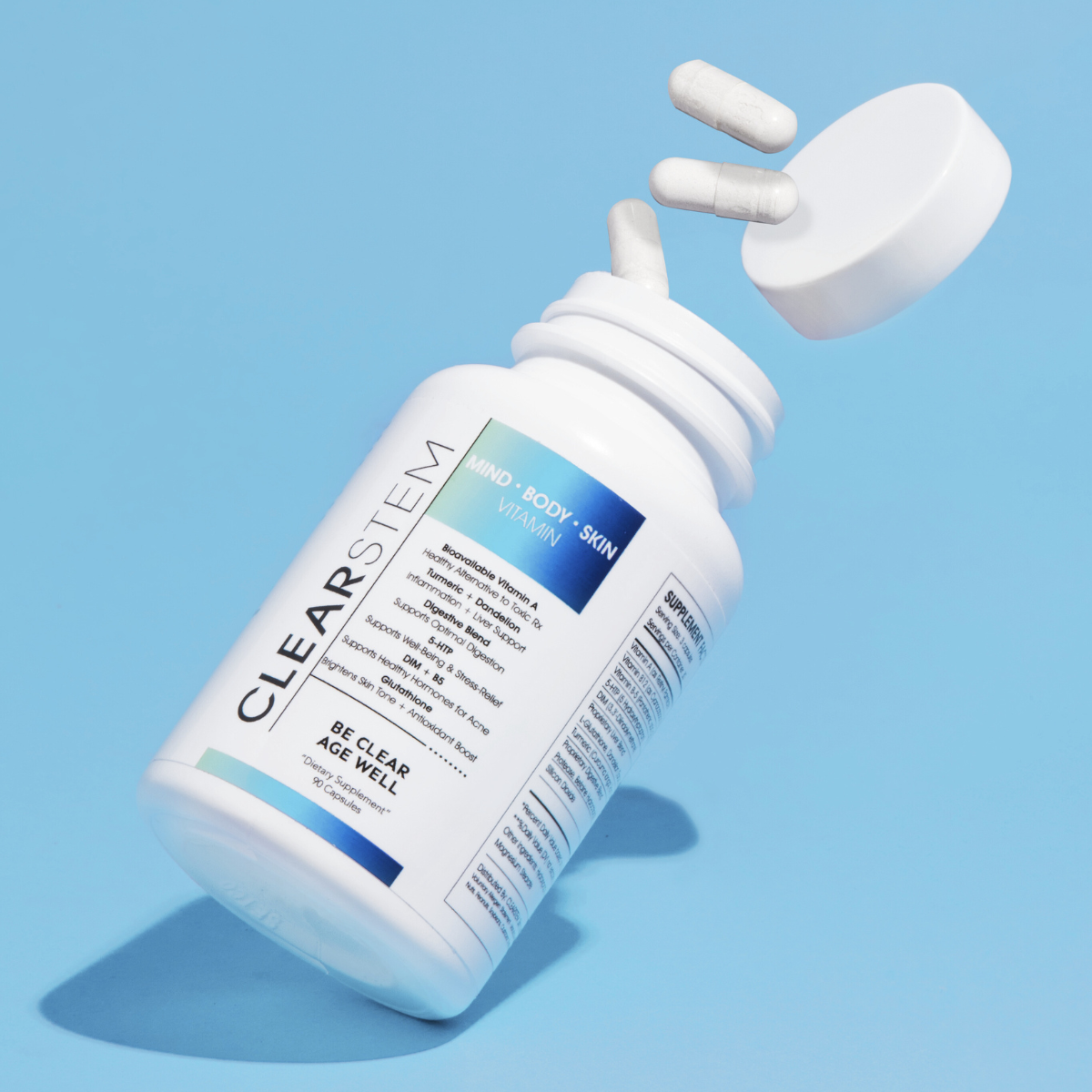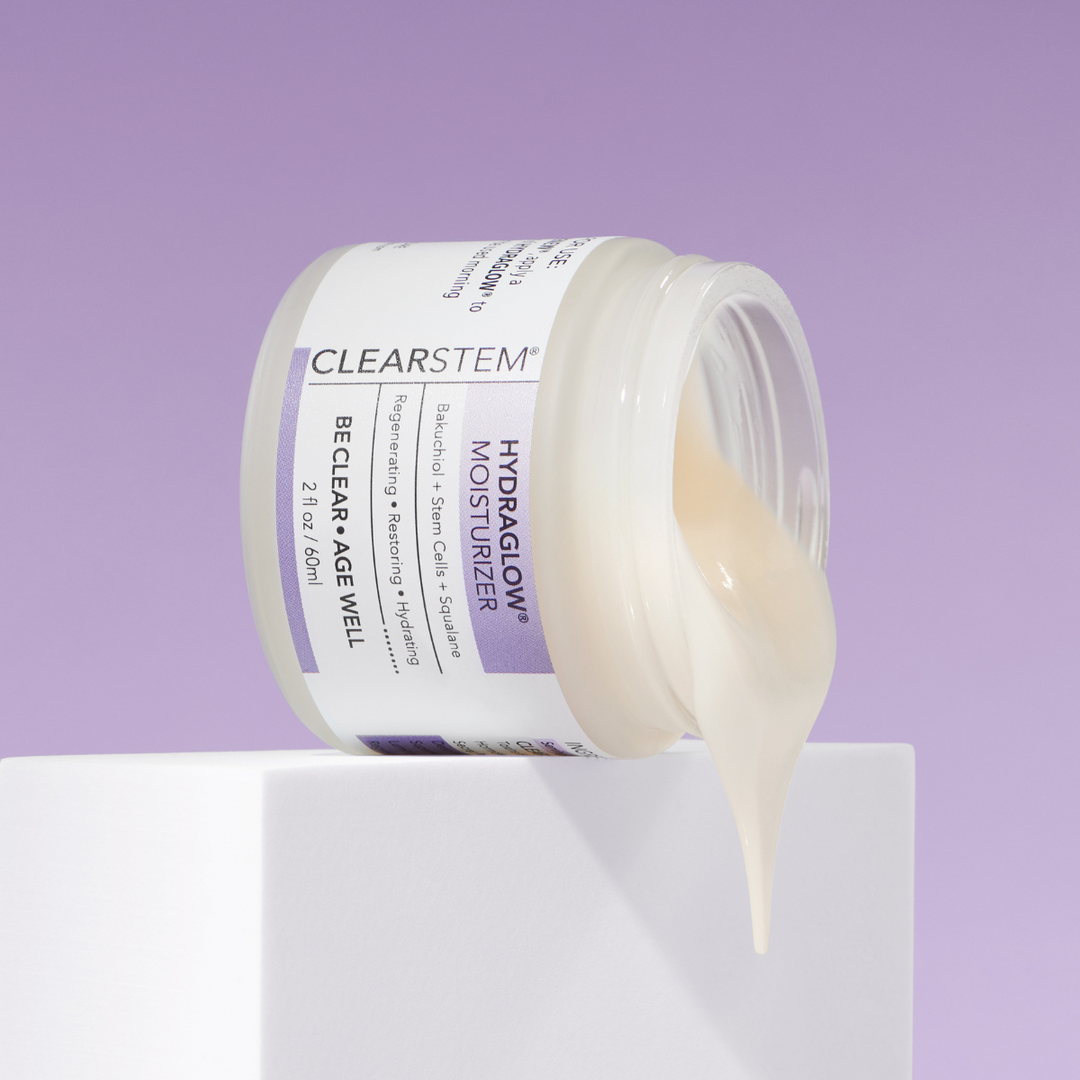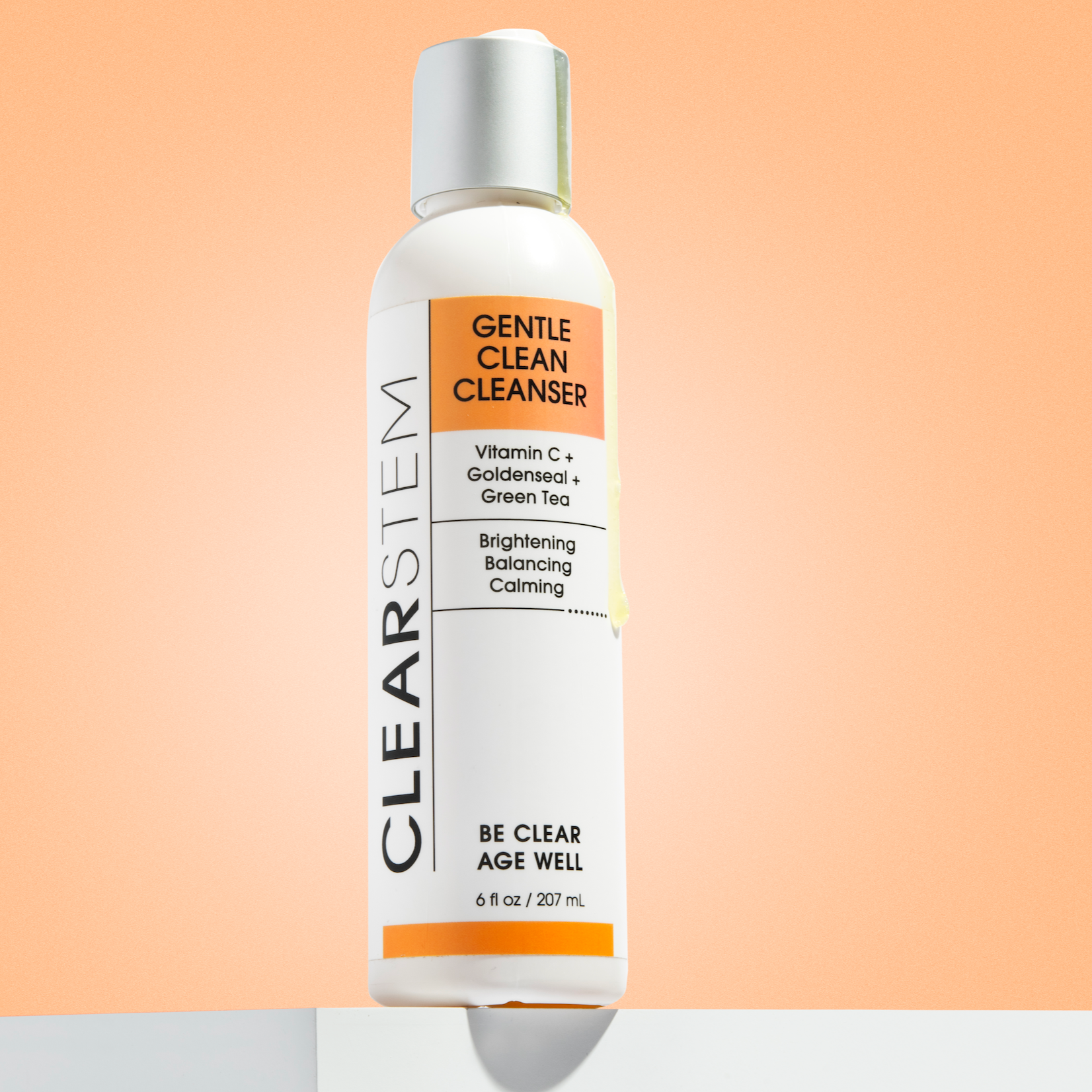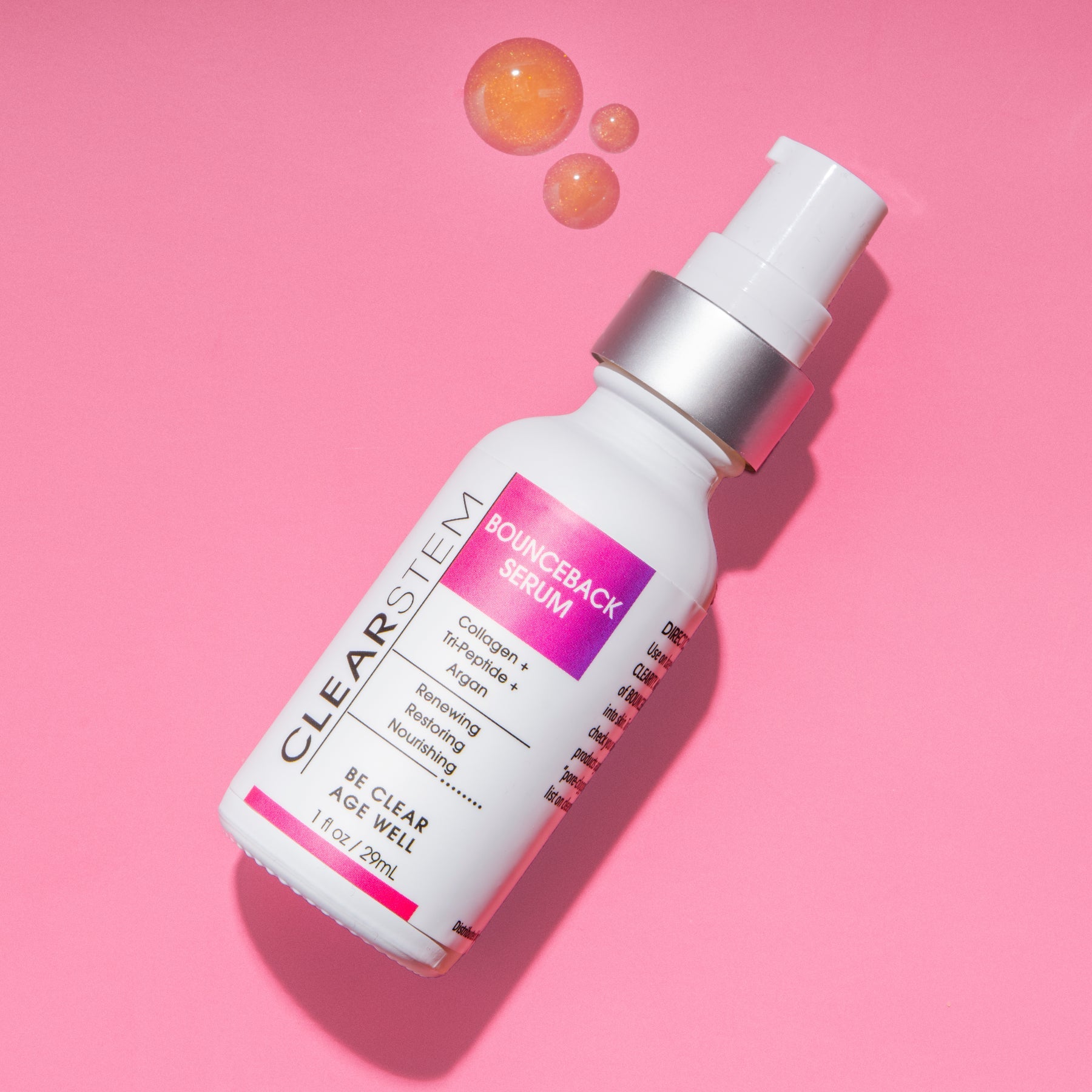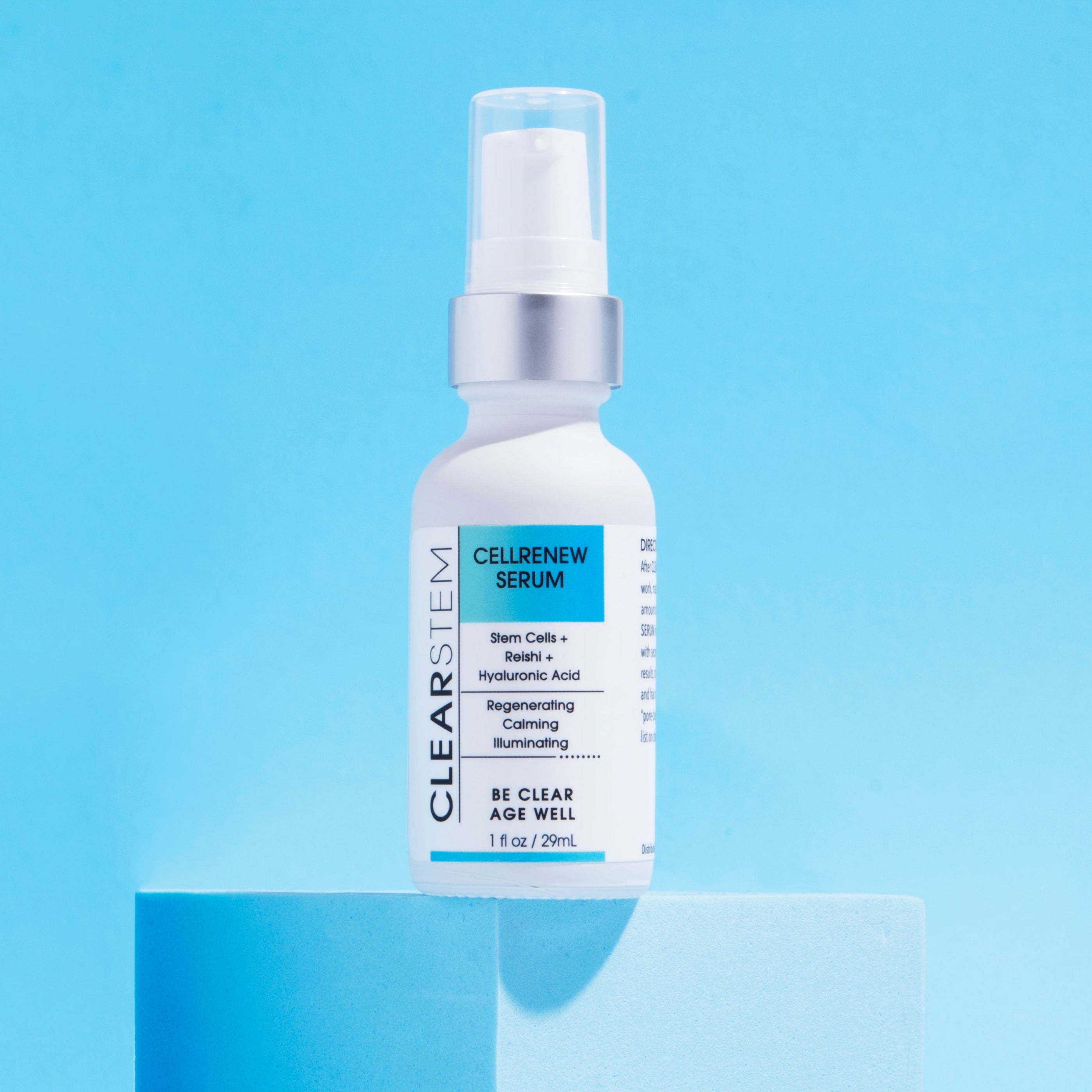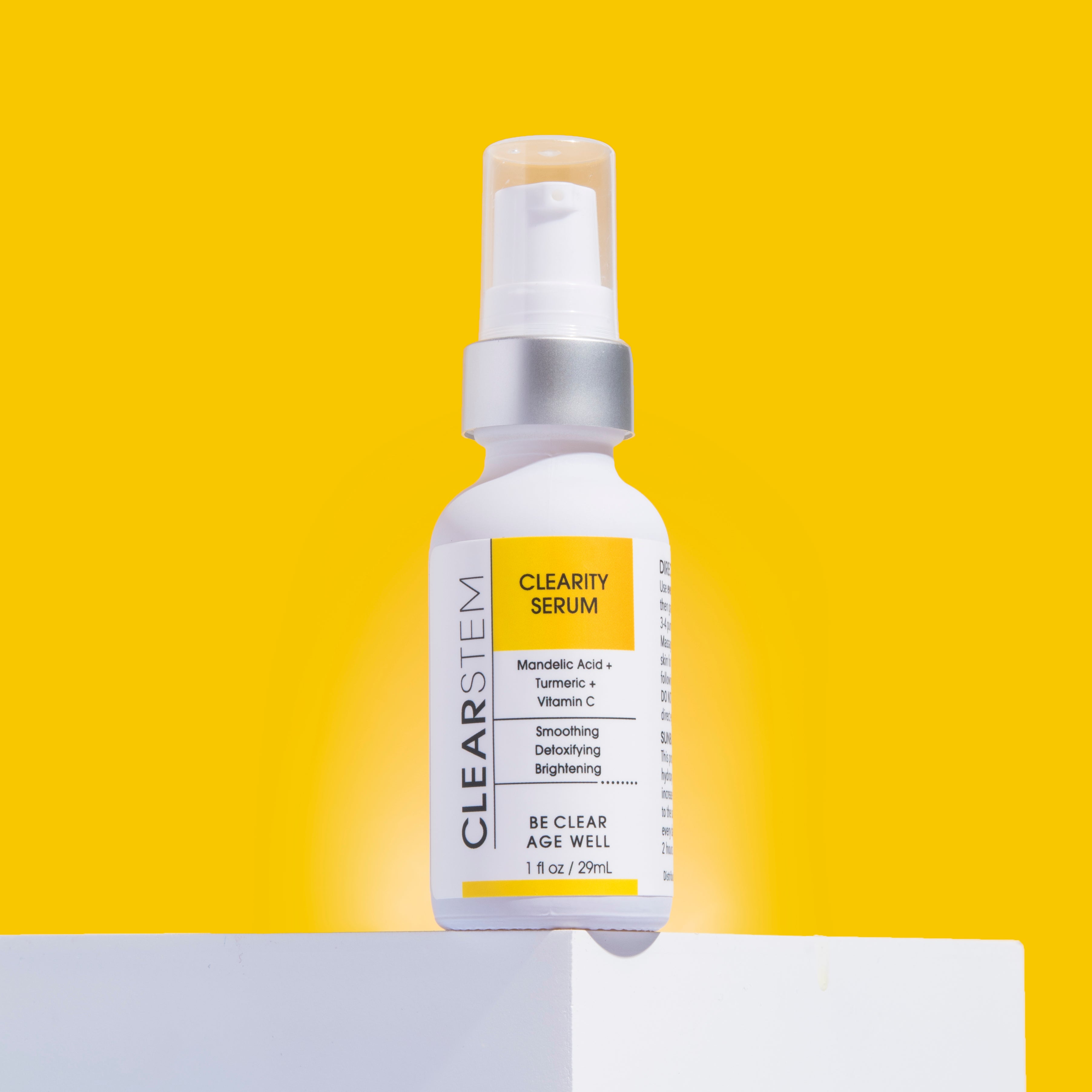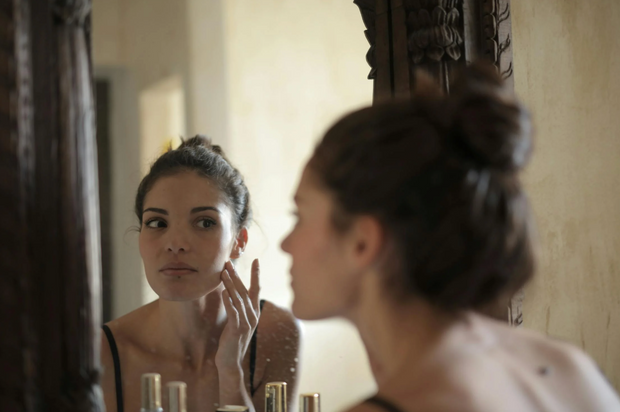We invest in high-quality skincare to keep our complexions clear. We pamper our hair with luxurious products to help it maintain a sleek shine. But when nurturing the well-being of our scalps, TLC often falls short.
Just because your scalp is out of sight doesn’t mean it should be out of mind. After all, when your scalp is healthy and thriving, you might be able to go days without thinking about it at all, but when a scalp issue arises, it can be impossible to ignore.
If you feel like you’ve been giving your scalp the short end of the stick, worry not—we’ve all been there. If you’re looking for a healthy scalp routine, the experts at CLEARSTEM have you covered. By using the strategies in this article, you can prevent the development of uncomfortable conditions and promote the growth of healthy, strong, happy hair.
The Importance of Scalp Health
Plants grow fuller, brighter, and greener when their roots are planted in a foundation of rich soil.
Similarly, your scalp serves as the foundation of your hair strands. If you take good care of your scalp health, you can be rewarded with healthy hair growth. This is because the scalp is the source of the follicles from which our individual hair strands grow.
Over the years, numerous studies have found evidence that establishes a link between scalp health and hair health. But despite the clear consensus around how crucial scalp health is, there’s a surprising lack of education available when it comes to the topic of properly caring for your scalp.
Common Issues Associated with an Unhealthy Scalp
Whether it’s pain and discomfort in the scalp itself or hair issues that stem from a scalp-related problem, an unhealthy scalp can lead to a couple of chief concerns. Below are a few of the most common scalp issues:
Dandruff
This common condition occurs when flakes of dry skin separate from the scalp. Sometimes, these small white flakes sit on the hair, and other times, they may fall off and land on your clothing throughout the day.
Factors that can instigate dandruff include:
- Medical conditions
- Hair care habits
- Oily skin
- Dry scalp
A bout of dandruff can create a frustrating cycle in which a person suffers from an itchy scalp, scratches it to seek relief, and even more flakes of skin come off as a result of the abrasion.
The good news is there are many accessible treatment methods available for dealing with dandruff. If you find yourself experiencing dandruff, investing in your scalp’s health can help solve the problem at the source.
Itchiness
Irritated and dry skin often produces uncomfortable, itchy sensations, and the skin of the scalp is no different.
An itchy scalp may be a symptom of a scalp condition like dandruff, or it can strike in response to a separate cause, such as:
- An allergic reaction to hair care products
- Psoriasis flare-ups on the scalp
- Atopic dermatitis (a type of eczema)
That said, if you experience chronic itchiness on your scalp, especially if the sensation is accompanied by burning feelings or pain, there may be an underlying medical condition at play, and you should seek advice from your healthcare provider and use a scalp treatment to soothe your irritation.
Hair Loss
The human body typically loses 50 to 100 hairs in a single day, but we normally don’t notice this process because new hairs are usually growing in place of the old ones we shed. However, sometimes new hair can stop growing to replace the hair you’re losing, which can lead to hair thinning or loss.
Also known by the scientific term alopecia, this type of hair loss can be either temporary or permanent and can be instigated by many factors:
- Genetics
- Hormones
- Medical conditions
- Aging
- Life stress
But in addition to those factors, scalp health can contribute as well. Some studies have seen correlations between poor scalp health and premature hair loss, suggesting that taking good care of your scalp may lower your risk of losing extra strands.
Excess Oil
Another symptom of an unhealthy scalp is one that’s full of oil.
Your scalp generates natural oil, or sebum, for a variety of reasons: to keep it clean, to moisturize it, and to protect it from harmful external elements. But sometimes, oil production goes into overdrive.
If the scalp is too dry, caked with excess product, washed too frequently, or clogged with chemicals, your scalp may start to over-produce natural oil and leave a greasy shine in its wake.
To cleanse your oily scalp of excessive sebum without using chemicals, use a gentle shampoo formulated with natural ingredients and free of harsh chemicals.
3 Tips for Scalp Health
Whether you suspect that your scalp health is currently lacking in some areas or you simply want to take proactive steps to nourish it, you’re in the right place. Take a look at these TLC tips for your healthiest scalp.
#1 Regular Washing and Cleansing
From producing sebum that lubricates your hair strands to secreting sweat to cool down your body, the scalp accumulates more than its fair share of dirt and grime on a daily basis.
To maintain healthy hair, it’s vital to adopt a consistent cleansing routine.
However, you must be careful about the ingredients you use on your sensitive scalp skin.
Nobody likes the greasy feeling that comes with having an oily scalp, but if you try to remedy your problem by constantly scrubbing the excess oil out of your hair with a harsh shampoo with harmful chemicals, you could be stripping your scalp of its natural sebum and encouraging it to make even more.
Invest in a non-comedogenic shampoo that offers gentle yet effective cleansing properties, and keep up with a consistent washing schedule about 4 or 5 times a week.
Using Non-Comedogenic Hair Care
Non-comedogenic haircare products are those that do not clog the pores.
You may have seen this term used to refer to skincare products such as moisturizers, but what many people don’t know is that it’s also important to invest in non-comedogenic hair products. This is because hair products, such as shampoo and conditioner, make frequent contact with our skin and can even leave residues and deposits behind even after you rinse them out.
If you want to prevent hair products from causing acne, consider choosing non-comedogenic hair products that leave your scalp clean and healthier for longer.
Follow a Healthy Diet
If you’ve ever noticed that your hair became sleeker, shinier, and stronger when you consistently improved your nutrition, then you’ve observed firsthand the powerful effects that a healthy diet can have on your scalp.
Some foods you can eat to nourish a strong scalp and healthy hair are:
- Fruits and vegetables – Rich in vitamins and minerals, fruits and veggies are an important addition to any health-conscious diet.
- Yogurt – Get a hefty serving of vitamin A, which is vital to the production of the sebum that moisturizes your scalp, by enjoying a yogurt for breakfast.
- Avocados – Chock full of omega-3 fatty acids, avocados can help to relieve dryness in the scalp.
- Salmon – The vitamin D in fish like salmon helps to bolster the immune system and may help symptoms of psoriasis.
- Eggs – Iron helps red blood cells carry oxygen to the scalp, stimulating the growth of healthy hair.
Don’t forget to gulp down plenty of water to keep your skin (including that of your scalp) hydrated.
While you pencil these items in on your next grocery list, it’s also smart to think about which hair care ingredients to avoid. Experts recommend cutting back on bread, alcohol, and sugar intake if you’re experiencing scalp issues such as dandruff.
Finally, keep in mind that the hair and skin are often the last parts of the body to receive nutrients when your body is suffering from poor nutrition because nutrients will be allocated to your vital organs first.
As a result, your scalp and hair can start to show signs of a poor diet quite quickly.
If you start to notice scalp or hair issues, take a look at what you’re putting on your plate and do your best to refuel your body with an ample amount of nutrients.
Scalp Massage and Stimulating Circulation
A scalp massage certainly feels relaxing and invigorating, but did you know that it also offers health benefits, too?
It’s true—scalp massages can stimulate blood flow, helping to optimize your circulation. When blood is able to flow freely around your scalp area, your hair follicles can more easily receive the nutrients they need to thrive.
To enjoy the benefits of scalp massaging, you can use an at-home scalp massager, go to a professional, or learn techniques for effectively massaging your head at home.
Avoid Heat Styling Tools
You may already be aware of the potential negative effects of too much heat on your hair. But we don’t often talk much about the potential ramifications of heat on your scalp.
Just like your back on a hot day at the beach, heat sips up moisture and can leave dry skin behind. So, products like hair dryers should be used cautiously around the scalp, especially if your scalp is already dry.
For other heat-styling tools like flat irons and curling irons, avoid holding them close enough to the scalp that the heat dries your scalp skin. Additionally, avoid excessively tugging on your hair while styling it, as this can weaken the hair follicle and place undue stress on the scalp.
Key Ingredients for a Nourished Scalp
With the strategies from this guide on your side, you can bolster your scalp’s natural health and avoid causing unintentional damage to it.
But to take your scalp care strategy one step further, nourish the area with powerful ingredients such as:
- Calming agents – Natural ingredients like botanical extracts can work wonders when it comes to soothing your scalp. For instance, we include Chamomilla Recutita in our shampoo because its calming properties reduce redness on contact.
- Essential oils – Hair products that contain synthetic fragrances can upset the natural biome of your scalp. To achieve a pleasant post-shower aroma without sacrificing your skin, use a shampoo that derives a naturally fragrant scent from ingredients like essential oils.
Nourish Your Scalp with CLEARSTEM Hair Solutions
If you work clean, high-quality hair care products into your routine now, you can sustainably nurture your scalp health and avoid the hassles of unsavory scalp conditions later on.
Our Restorative Shampoo and Repair Conditioner are a powerful duo that can revolutionize the way you care for your scalp health. Incorporate them into your hair care regimen to start feeling the difference in your scalp and seeing it in your hair.
Sources:
National Library of Medicine. Scalp Condition Impacts Hair Growth and Retention via Oxidative Stress. https://www.ncbi.nlm.nih.gov/pmc/articles/PMC6369642/
American Academy of Dermatology. HOW TO TREAT DANDRUFF. https://www.aad.org/public/everyday-care/hair-scalp-care/scalp/treat-dandruff
American Academy of Dermatology. 10 REASONS YOUR SCALP ITCHES AND HOW TO GET RELIEF. https://www.aad.org/public/everyday-care/itchy-skin/itch-relief/relieve-scalp-itch
Mayo Clinic. Hair Loss. https://www.mayoclinic.org/diseases-conditions/hair-loss/symptoms-causes/syc-20372926#
Healthline. What Causes an Oily Scalp, and How Do I Treat It? https://www.healthline.com/health/oily-scalp
Well and Good. 8 Scalp-Friendly Foods a Trichologist and Dietitian Want You To Add to Your Diet for Healthier Hair. https://www.wellandgood.com/foods-for-scalp-health/#
WebMD. Food and Dandruff: What's the Link? https://www.webmd.com/skin-problems-and-treatments/features/food-link

